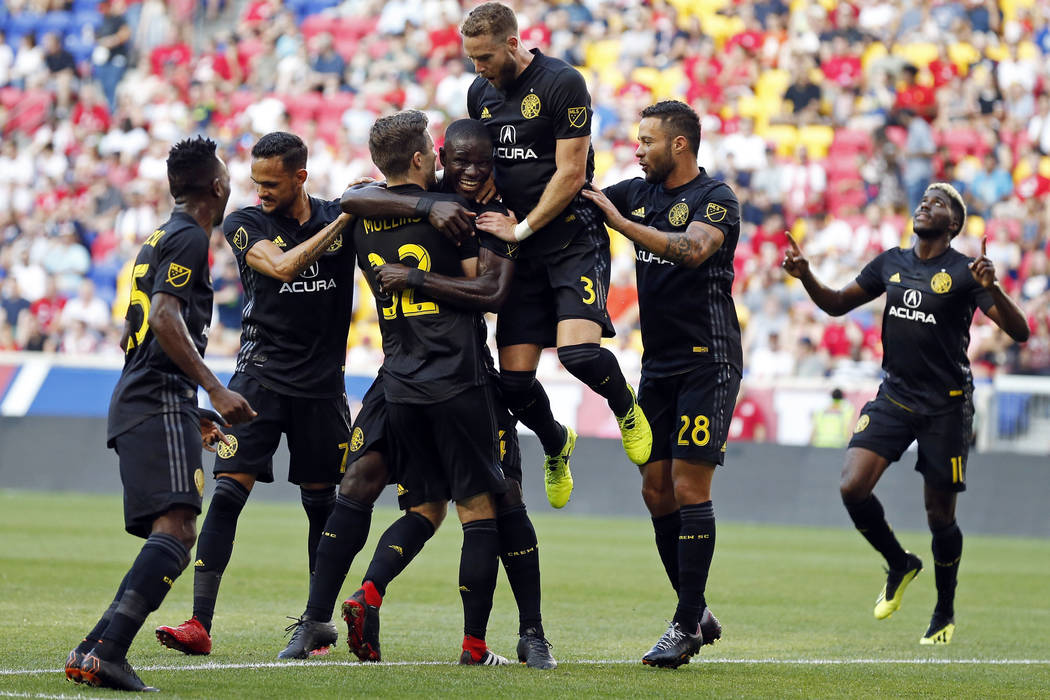Before you fill out that bracket, I am here to tell you who will win March Madness. Do you want bragging rights among your coworkers? Prove to your friend group that you are THE sports guru? Impress that girl that you have incorrectly assumed cares about how well your bracket did? This is the place for you.
MLS, Not Youth Soccer, to Blame for U.S. Soccer Failures
We've talked at lengths about the role college soccer and developmental academies have to play in the current state of soccer in the United States. The Women's game is doing just fine on the international stage, although they have a lot to improve on domestically. Today the focus is on the Men and how the MLS has escaped blame for far too long.

Where youth development is bottom-up, national team development must be top-down.
The MLS must set an example for the rest of the American soccer system. Players should have a league they can look up to as a viable option.
Of the premier teams in the MLS, only 11 of NYFC's 24 first team players are American, 7 for LAFC, 12 for Atlanta United, and 12 of 24 for the Seattle Sounders, the defending MLS Cup Champs. This is fitting for a league wherein 2018, less than half of the minutes went to American players.
Compare that to the Brazilian Serie A, for the defending champions Flamengo, 30 of their 33 first team players are Brazilian. Go to Argentina, it is 19 of 25, for defending champions Boca Juniors.

The MLS is actively showing its players that they have no place in the game. Meanwhile, we continue to point the finger at youth development and college soccer when the MLS is the most responsible culprit.
The MLS is just as culpable in the problems plaguing American soccer as any of the other forces, if not arguably more culpable. The way things are, it is a league that has been built to look more like a vacation destination for aging stars, than a league for the country's best players.
There is room for international talent in any given league, but it cannot come at the expense of the country's domestic players. There needs to be a home for American players to compete, while the elite go on to European leagues. Brazil, Argentina, Germany, France, Spain, Italy, Mexico, and Colombia are all examples of countries that follow this principle. While the best players in those countries may grow to leave the domestic league, they most often start in that league and are part of a system where the majority of the players in the league are from the country. It sets an example for the rest of the developmental system in those countries.
This is not to say the MLS has gotten it all wrong. The MLS has excelled in growing the game rapidly, wrestling viewership away from more popular sports in the country, and doing the best it can with limited attention. That predicament has given the league a bit of an inferiority complex, pushing it to constantly pursue aging international stars who are past their prime to help grow the game in the country at the expense of domestic players.

The MLS must push past its inferiority complex if it wants to grow into a more competitive league while also improving the condition of the national team.
This might mean adjusting registration laws that enforce MLS teams play a minimum number of American players in a game.
This could mean expanding the college draft and making it a more viable option for MLS Teams to pick up talent.
It could also mean changing the Home Grown Player laws. So now when a player goes into college, he can no longer be claimed as a homegrown player. Placing more pressure on MLS teams to do their part in developing players and improving the talent of the MLS draft.
Enforcing a rule where a minimum amount of the players in each matchday squad were trained in the country, either through college soccer or the club system.
Limiting how many international players can be in each matchday squad. Croatia, the surprise finalists of the 2018 World Cup, has a limit of just six international players for each matchday squad, Argentina also limits it at 6, and Brazil caps it at 5.

These are just a few suggestions of the kind of rules found in other countries that protect domestic player development. The MLS has a lot to change if the national team is ever going to improve.
The MLS must set the example in becoming the kind of league American players can look forward to, those are the kind of leagues the best countries in the world have.
Like and subscribe to stay up to date with our future content.
Latest posts in our blog
Read what's new this week
On February 22nd in Riyadh, Saudi Arabia, we will witness one of the best cards in boxing history, with all seven fights on the card being title fights that would sell out arenas if they were the main event. The 'Last Crescendo' name is fitting for a card that gets more and more intense as the fights go on, with...
Social Media Has Ended Big Market Teams
It is time to rethink the way we think about sports and marketability. The global popularity of social media has fundamentally changed sports consumption and the idea of market sizes. The phenomenon fueling this belief is LaMelo Ball and what just happened with the NBA All-Star vote.




